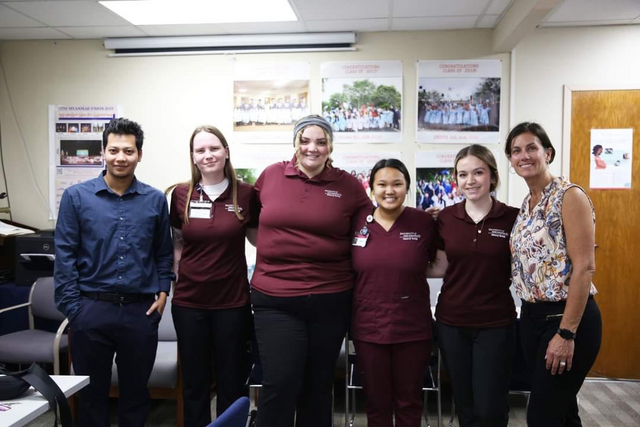CSLCE Awarded w/ Outstanding Community Partner Award from BACI

Written by Addison Campbell
In September, the Burmese American Community Institute (BACI) awarded the Center for Service-Learning and Community Engagement (CSLCE) at the University of Indianapolis with the Outstanding Community Partner Award in Community Service and Education during their 30 Years of Burmese Community in Central Indiana celebration.
UIndy’s Center for Service-Learning and Community Engagement’s long standing partnership with BACI provides UIndy and local highschool students with invaluable opportunities to embody the University’s motto of, “Education for Service.”
“Working with BACI has allowed me to share my love and passion for the nursing career and the School of Nursing at UIndy,” said Kylie. “I have learned so much while being a nursing student here and I want to share my knowledge with anyone who has or has not considered a career in nursing.”
Earlier this year, senior UIndy School of Nursing students Kylee Collinsworth, Sophie Coy, Lindsey Henkle, and Caroline Story dedicated their time serving with BACI. The Upward College Program is a year-long mentorship and tutoring program designed to help high school students prepare for college. The program also provides financial, educational, and employment resources to Burmese Americans in the Indianapolis community. As part of their service, Kylee, Sophie, Lindsey, and Caroline share their first-hand experience within the School of Nursing at UIndy and offer insight into the admissions process at UIndy. Additionally, UIndy will host students within the BACI program on campus to showcase life as a UIndy nursing student. The group will tour campus and spend time in UIndy’s state-of-the-art SIM Lab.
“This project has been meaningful to me since it has brought more awareness to the lack of cultural representation in the healthcare field,” said Sophie. “Increasing diversity in nursing is just one way to address the issues of health disparities and inequity for minority populations and to increase positive health outcomes.”
